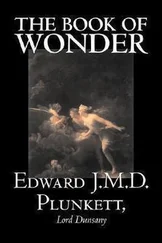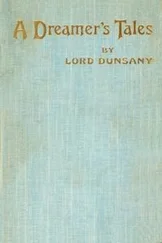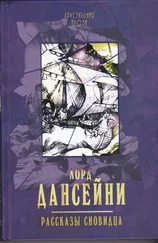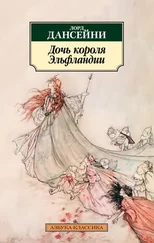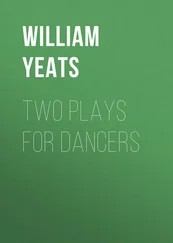SIR JOHN: You remember how you bet me two hundred and fifty each, that she would defeat me.
SIR ALGERNON: Yes, yes. And we had a dinner on your five hundred.
SMEW: Yes, it was a dinner.
SIR ALGERNON: That was in the summer of the year, let me see.
SIR JOHN: And you remember that if I won I was to give my word of honour that it was so, to you two alone.
SIR ALGERNON: Yes, yes, of course. The only way to decide it.
SIR JOHN: Of course; it was the only way.
SIR ALGERNON: Well you lost your bet, old man, and you paid up at once. What’s the matter?
SIR JOHN: I gave my word of honour to tell you if I won.
SIR ALGERNON: Yes, yes. But you didn’t.
SMEW: My dear old boy, it was your only defeat.
SIR JOHN: She was so horrified, so downcast, so sad; that I somehow got the idea that no–one should know of it.
SIR ALGERNON: My dear old boy, what are you talking of? You lost your bet, you paid up and we had that dinner.
SIR JOHN: No, I won it really.
SIR ALGERNON: You won it?
SIR JOHN: Yes, she’s dead now, I read that she died three years ago; and I won it really.
SIR ALGERNON: You won it?
SMEW: Won it really?
SIR JOHN: Now I was bound in honour to tell you, for the purpose of winning your money. If I gave up the money was I still bound? I fear I was. I can’t work it out; my mind’s not clear enough, and there’s this great weight on it.
SMEW: Of course not, old boy.
SIR ALGERNON ( to SMEW): It’s a knotty question.
SIR JOHN: I know you will tell me the truth; fully and not just….
SIR ALGERNON: As it is a point of honour I must. ( To SMEW.) I’d like to talk it over with you for a moment. You see I never met a case quite like….
SIR ALGERNON
and
SMEW _walk to window, stand close and talk low.
And so some moments pass._
SIR JOHN: Don’t be too long, old boy. There isn’t so much time as all that.
SIR ALGERNON: No, we won’t be a moment.
A little more time elapses. SIR ALGERNON and SMEW return smiling from the window .
Well, old boy, I’m glad to tell you the case is like this.
SIR JOHN: It’s all right is it, Algy?
SIR ALGERNON: In my opinion it’s like this.
SIR JOHN: There’s no–one in the world whose opinion I’d take before yours.
SMEW: No, no indeed.
SIR ALGERNON: Well, it’s like this. In the matter of a bet one must go by the strict letter. There’s no other way. And this was a bet. But then your word of honour was definitely brought into it. And as a matter of honour is more important than a bet, we must treat it as a matter of honour. Now in such a matter the spirit counts before everything.
SIR JOHN: Yes, that’s so.
SIR ALGERNON: Well the spirit of the arrangement was that you should tell us what really happened in order to get the money. When you let the money slide you were free of your obligation.
SIR JOHN: Are you certain sure, Algy?
SIR ALGERNON: Absolutely.
SMEW: Both of us.
SIR JOHN: Then I die a man of honour.
SIR ALGERNON: As you have always lived, old man.
SMEW: As you have always lived.
Handshakes and silent farewells. Exeunt. SIR JOHN lies still .
SIR JOHN ( feebly ): Nurse. ( She hurries in. ) Nurse.
NURSE: Yes.
SIR JOHN: Tell ( she bends anxiously nearer to get the message )—Tell that vicar——
NURSE: Yes? Yes?
SIR JOHN: He can go to hell. ( Dies. )
CURTAIN
Dramatis personæ
* MRS. UPSHOTT (Housekeeper at the Vicarage)
* MR. SLIGGEN (The Vicar)
* THE DARK STRANGER
* THE BISHOP OF WEALD AND WOLD
* MRS. BELTHAM (his Wife)
* MR. MEEDLE (his Chaplain)
* SIR EDWIN MARTRAP (the Squire of Amber)
* MRS. MUNCHEON } Important
* MR. AND MRS. PURSNIP } Parishioners
SCENE: The Vicarage at Amber–in–the–Downs. The VICAR’S study .
The VICAR enters wearing his surplice (or a coat or waterproof). He takes it off and hangs it on a peg, then sits at his writing–table with paper before him, and one or two books of reference. But in spite of intense concentration the writing is going badly. And either considerable noise is coming in from the kitchen, or the VICAR thinks it is. He rises and opens the door in the left–hand wall (audience’s left) and calls:
VICAR: Mrs. Upshott. Mrs. Upshott.
MRS. UPSHOTT: Yes, sir.
VICAR: Would you mind coming here for a minute.
MRS. UPSHOTT: Not at all, sir.
Enter MRS. UPSHOTT.
VICAR: I want to ask you as a favour, as a very special favour, to make as little noise as you possibly can.
MRS. UPSHOTT: Noise, sir?
VICAR: Yes, as little as possible.
MRS. UPSHOTT: Well, sir….
VICAR: You see, I have a sermon to prepare for to–morrow, that calls for the very greatest effort, and I find it very hard to concentrate when I am continually interrupted. I feel it to be of the very greatest importance that the sermon I preach to–morrow should be the best of which I am capable.
MRS. UPSHOTT: You forget that the bishop is coming, sir.
VICAR: No, Mrs. Upshott, indeed I don’t forget it. It has been on my mind all the week. And my sermon is less than half finished.
MRS. UPSHOTT: You must have forgotten it, sir, if you want me to stop my work. And I don’t think you know how many will be coming in here besides his lordship, at 5.30.
VICAR: Yes I think I do, Mrs. Upshott. But we can see about that when the time comes.
MRS. UPSHOTT: Can we indeed, sir? Just make the tea and let them have it without any sugary cakes or any extra milk! They’d be like a cage–full of roaring lions.
VICAR: Really, Mrs. Upshott.
MRS. UPSHOTT: They would, sir. They would indeed. The bishop and all.
VICAR: I can hardly picture the bishop giving expression to annoyance in any form over trifles.
MRS. UPSHOTT: That’s because you don’t have to get the tea–things ready, sir. But I know what gentlemen like, and I know what they’re like when they don’t get it. And the bigger they are the angrier they get.
VICAR: Well, Mrs. Upshott, my sermon has to come first; so, if you’d be as quiet as you can for an hour.
MRS. UPSHOTT: The bishop won’t mind about the sermon, sir, so long as he gets his tea. But just to please you I’ll be as quiet as I can.
VICAR: Thank you, Mrs. Upshott, and I’m going to lock the door so that I can’t be disturbed by anyone. And would you lock that one ( points R.) so that no–one can come in anywhere.
MRS. UPSHOTT: Oh, no–one comes that way, sir.
VICAR: Never mind; we’ll have it locked.
She locks it. Exit L. VICAR then locks that one also. He returns to his table, but inspiration does not come. After a while the DARK STRANGER slips from behind the surplice that hangs on the wall and walks slowly towards the VICAR from behind. As he wears no boots or shoes his black socks make no sound. There is no light in the room but two candles beside the VICAR’S ink–pot. He reaches the VICAR’S elbow .
VICAR: Hullo! What do you want?
DARK STRANGER: I want to help you.
VICAR: But how did you get in?
DARK STRANGER: Excuse me, but shall we not discuss relevant things instead of trivial? You need help, do you not?
VICAR: Perhaps. But how did you get in?
DARK STRANGER: As you wish. But is not help of more importance than the direction from which it comes?
VICAR: How do you know I want help?
DARK STRANGER: Is it not more important whether I am wrong or right, than how I come to be right?
Читать дальше





